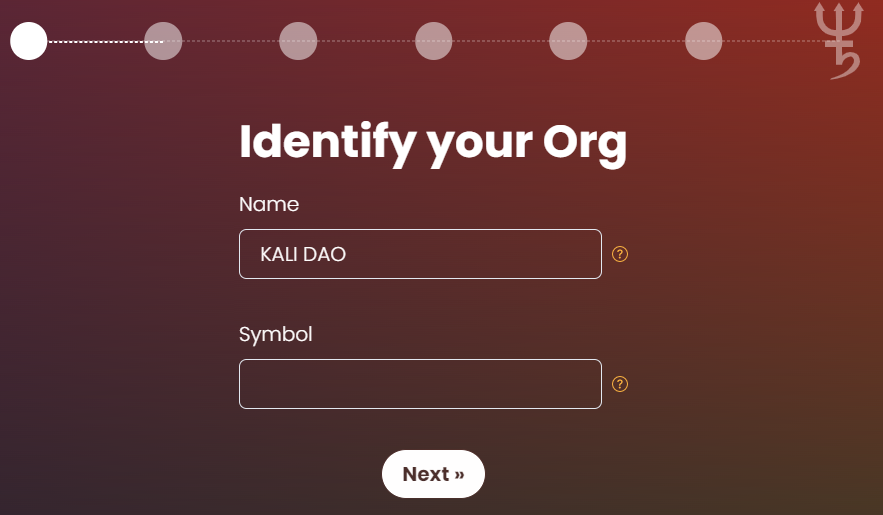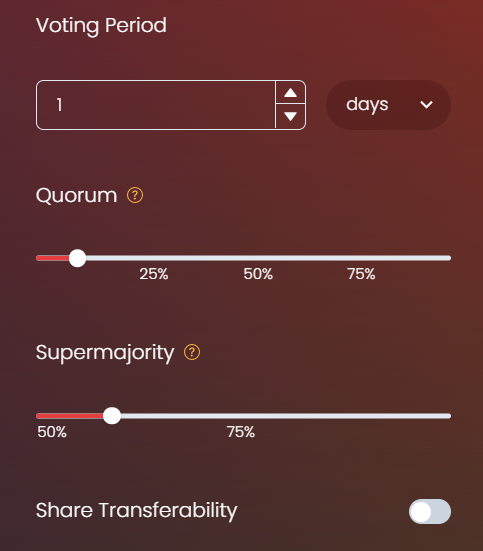What is KALI?
KALI is an application to simplify DAO and legal structuring. It includes end-to-end tokenization, voting, and legal support such as LLC formation and agreement drafting software.
What is a DAO?
A DAO is like a shared bank account, but operated by code or “smart contracts”.
What is a Smart Contract?
A smart contract is code on a blockchain that will run exactly as programmed. They can manage assets without inference and for DAOs, enforce proposals, such as membership and payments. Smart contracts deployed on KALI will survive the platform, don’t depend on KALI developers, and will persist as long as blockchains run. Smart contracts therefore give KALI users true ownership of their organizations.
Why do DAOs need Legal Structure?
DAOs are managed by people, and as they typically involve the pooling and use of assets, can create traditional legal liabilities for all involved parties. Without a formal legal structure, jurisdictions may treat DAOs as unincorporated general partnerships, giving members joint and several liability for claims made against the DAO. This effectively means that a single member could be held responsible for the entire sum of damages in the event of unfavourable litigation. Limiting the liability of DAOs through light-weight legal structures has therefore been seen as a common sense solution to scale and operate with “IRL” concerns, such as hiring and making investments.
How does KALI provide Legal Support?
KALI allows users to immediately wrap their DAO in a Delaware LLC, as a “child” of the KaliCo Ricardian Series LLC. Effectively, each DAO will have its own rights and liability protection, separate and apart from each other, enforced by Delaware law and under the terms of the LLC master operating agreement.
Additionally, KALI integrates with a community of legal and knowledge service providers, LexDAO, and can assist with formation and compliance through its contact form and referral network.
What should I be thinking about when I create a DAO?
The more consideration as to the needs and structure of your DAO at the start, the fewer changes may be required in the future through proposals (which will reduce gas fees and decision friction).
The most important considerations to make (other than, of course, your DAO name and symbol) are:
- Who are the founders?;
- What are their fair token allocations?;
- What voting procedures should the DAO operate by?; and
- Do you want to establish your DAO with a legal wrapper? KALI and LexDAO recommend that you discuss this decision with a legal and tax expert prior to establishing your DAO.
How do I create my DAO?
Select a chain
Different networks may provide security, speed, and fee advantages. Kali DAOs are currently deployable on:
- Ethereum Mainnet
- Arbitrum One
- Rinkeby (Testnet)

Identify your Org

Select a template

Social
A DAO established for social purposes - anyone can join by paying the established tribute, and a smaller quorum is required to pass proposals to keep things moving and fun!
Investment Club
A DAO established for collective investing (including ERC-721 and ERC-1155 NFTs) - upon summoning, the DAO will immediately commence a 30 day ETH crowdsale at a price of 10 shares per ETH.
Company
A DAO established for providing services and receiving on-chain payments. Smaller quorum required to pass proposals and a shortened voting period emphasizes speedier operations.
Customize your governance
Establishing a custom DAO allows the organizer to determine the required Voting Period, Quorum, Supermajority, and Share Transferability.

Voting Period
How much time a proposal can be voted on by members before being ratified or rejected by the DAO.
Quorum
What percentage of DAO tokens (out of total outstanding) need to participate in a given proposal in order for it to be passed. Proposals that don’t achieve a minimum quorum will fail, even if the final vote is in favour of the proposal.
Supermajority
What percentage of DAO tokens (out of total outstanding) need to vote in favour of a proposal in order for it to be approved prior to the end of the voting period.
Share Transferability
Determines whether DAO tokens are transferable by their holders without approval by the DAO. If shares are Transferable then DAO token holders will be able to send those token freely to other addresses. If non-transferable, then the tokens will be locked to the original founder addresses (or subsequent holders) and will not be transferaable until a proposal making such a change is approved.
Extensions
Kali DAOs can add applications to help automate certain membership and business functions.
Redemption
Allows DAO members to burn or 'ragequit' their DAO tokens for a proportionate share of DAO treasury assets.
Crowdsale
Allows the DAO to fundraise for a set period where the public can exchange assets for DAO tokens.
Tribute
Allows DAO candidates to bid on DAO tokens by making a proposal with an escrowed deposit.
Please note all of the above decisions may impact the legal status and standing of your DAO. Please consult a lawyer in your jurisdiction prior to determining the features of your DAO.
Build your cap table

Enter the Founder’s Ethereum addresses and the number of DAO Tokens to be assigned to them upon deployment.
Add legal docs

Select which legal structure you would like to summon for the DAO.
Confirm Deployment

Limitations on Legal Advice
The content of this website has been prepared for informational purposes only and does not constitute legal advice. The information on this website shall not be construed as an offer to represent you, nor is it intended to create, nor shall the receipt of such information constitute, an attorney-client relationship. We hope that you will find the information informative and useful, and we would be delighted to speak with you to answer any questions you may have.
Kali core contributors include Shivanshi Tyagi, Jordan Teague, Ross Campbell and Stamford Hwang. It is supported by the friendly shadowy super lawyers at LexDAO.